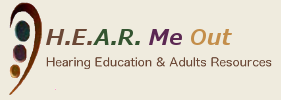Q & A with an audiologist
Gianni M Digiacomo is an audiologist technician in Denver, CO. He works for the Marions Downs Hearing Center at Fitzsimmons.
What is your background in this field? I’m really new to Audiology.
I have a little bit over a year of experience working in an Audiology clinic. My background actually stems from a music stand point. I have a Bachelor Degree in Music Business. During my Undergraduate I studied, Music Business trends and practices, sound recording and music performance and theory. Although I never pursued the recording portion of my degree I have been on both sides of the sound booth. I’ve been around studios, rehearsal spots and state of the art recording equipment most of my life, from early adolescence to adulthood. So the idea of sound, audibility and signal processing has always been interesting to me, and also an important creative outlet and one of my most cherished attributes.
How did you become interested in this field as an Audiologist Tech?
Once I heard about a job assisting Audiologists I jumped at the opportunity. I knew very little about Audiology, a cousin wore hearing aids and my aunt had a Cochlear Implant, but besides that it was foreign ground. I had a really great phone conversation with a Speech Pathologist that was a friend of a friend and he gave me great insight and more of an understanding what I was trying to embark in.
Tell us what an Audiologist does and how they can help those with a hearing loss.
An Audiologist is a Medical Provider, typically a PhD that helps people with hearing loss or congenital hearing loss. They first establish if a person is affected from hearing loss by testing them in a sound booth. There are several types of hearing tests, the one most people can relate to is the Pure Tone Audiometry where Audiologists test for frequency thresholds. This is the test where you raise your hand when you hear a beep. From here they determine if you need some type of Audilogic management. Solutions are usually hearing aids, but can also be Bone Anchored Hearing Aids or Cochlear Implants. This is just a basic definition, Audiologists like most medical providers tend to speacilize in certain areas and the technology for people with hearing loss is very vast and can be as unique as the patient.
What are some common misconceptions that people often have about hearing loss or using hearing aids?
A big misconception is some people using the term deaf to describe someone who wears hearing aids. This is an unfortunate misconception that can both offend the Deaf population along with those who suffer from hearing loss. It’s the same as calling a person who wears glasses blind; it can be said as a joke or a light hearted banter between friends but isn’t a correct term. Also this goes hand in hand with the fact that any person of any age can be affected by hearing loss, where the most common conception is that hearing aids are only for “old” people.
What are some current or upcoming technologies for the deaf and hard of hearing that fascinate you?
Asking a Tech this is a funny question, because there are many new technologies that fascinate me and it would be hard to list them all. I am most familiar with Hearing Aids, and there has been a lot of new technology that has come out in the last few months. My short list is the new Roger Line of technology from Phonak, the Roger Pen is a very versatile and from what I’ve seen very user friendly. Oticon’s Streamer Pro and the new Inteo chip has some very cool features. Widex just put out a CROS system which our clinic got a Demo in and one of Audiologists just played with yesterday, I’ve yet to listen to it, but want to check it out today. I could go on and on about hearing aid technology. Sometimes I wish I could wear some of these hearing aids. Haha.
Are there any general suggestions you can give to those who may be seeking hearing aids or assistance for their hearing loss?
The Marion Downs Hearing Center is a great place to look into if you’re in Colorado. Otherwise searching for a local Audiologist near where you live. Avoid going to one stop shops for hearing aids, if you want the best hearing solution you need to see professionals, find them and it will save you headaches in the future.
